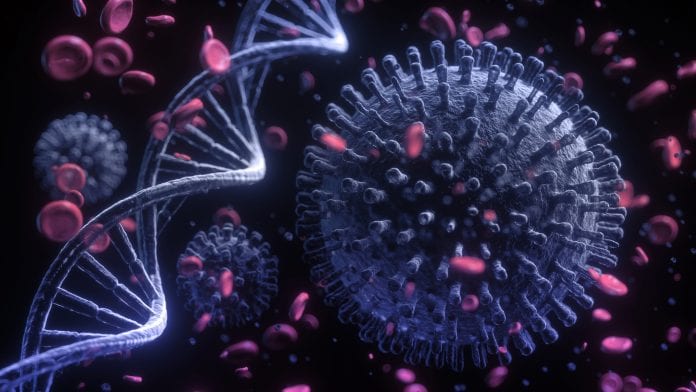
A new genetic discovery could explain why certain people do not exhibit symptoms of COVID-19, despite being infected with the virus.
A team of scientific and medical researchers led by Newcastle University, UK, has discovered that the gene HLA-DRB1*04:01 is found three times as often in people who are asymptomatic. This suggests that people with this gene have some level of protection from severe COVID-19.
The study, funded by Innovate UK, compared asymptomatic people to patients from the same community who developed severe COVID-19 but had no underlying illnesses. The research has been published in the HLA journal.
Genetic resistance to COVID-19
This is believed by the team to be the first clear evidence of genetic resistance, because this study compared severely affected people with an asymptomatic COVID-19 group and used next generation sequencing to focus in detail and at scale on the HLA genes which are packed together on chromosome 6. Other studies have scanned the whole genome, but that approach is less effective in the tissue typing complex.
Genome wide studies can be likened to a satellite image. The high density and complexity of the histocompatibility complex and variation in different populations means significant variation can be overlooked. For example, different alleles or versions of the same gene could have opposite effects on the immune response. This study was much more focused and compared symptomatic to asymptomatic cases in the same population, revealing the “protective” qualities of the allele.
Population differences
It is known that the human leukocyte antigen gene identified– HLA-DRB1*04:01 – is directly correlated to latitude and longitude. This means more people in the north and west of Europe are likely to have this gene, suggesting that populations of European descent will be more likely to remain asymptomatic but still transmit the disease to susceptible populations.
Dr Carlos Echevarria, from the Translational and Clinical Research Institute at Newcastle University, who also works as a Respiratory Consultant in the Newcastle Hospitals NHS Foundation Trust and is a co-author of the paper, said: “This is an important finding as it may explain why some people catch COVID but don’t get sick. It could lead us to a genetic test which may indicate who we need to prioritise for future vaccinations.
“At a population level, this is important for us to know because, when we have lots of people who are resistant, so they catch COVID but don’t show symptoms, then they risk spreading the virus while asymptomatic.”
The effect of genes being linked to geolocation is an accepted scientific concept and it is well known that HLA genes develop over generations in reaction to disease-causing pathogens.
The study used samples from 49 patients with severe COVID-19 who had been hospitalised with respiratory failure, samples from an asymptomatic group of 69 hospital workers who had tested positive through routine blood antibody testing, and a control group from a study into the relationship between HLA genotypes and the outcomes of joint replacement surgery.
The research used next generation sequencing machines to study the different versions, or alleles, of the HLA genes in depth which was combined with a variety of expertise and modelling. The work was limited to samples from North East England during the first lockdown. This reduced variation in the study groups but more studies will be needed in the UK and other populations as there may be different copies of the HLA genes providing resistance.
























